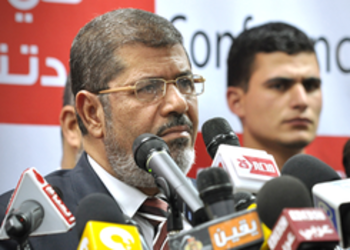Why Does Democracy Fail In Some Countries But Not Others?

On my way to work this morning, NPR's Morning Edition played an interview with an author that caught my attention. "Is democracy compatible with a country where there's a large Islamist movement?" is the fundamental question asked by Shadi Hamid in his book Temptations of Power: Islamists and Illiberal Democracy in a New Middle East.
His answer? "Liberal democracy in particular is probably not going to be compatible with these deeply religious societies that have Islamist parties for the foreseeable future." He sees progress in some areas with certain Islamist groups. For example, some have accepted alternation of power, democratic elections, and legitimacy coming from the people and not just from Allah's law. But in other areas, things like women's rights or minority rights, these parties' conservative, religious visions for society will instruct to what degree they will accept democratic control once they're in power.
Listen to the whole interview here.
It seems to me that putting democracy in a society like Egypt—or Iraq or Afghanistan or wherever there are large segments of ultra-conservative Islamist people—is like putting a band-aid on a bullet wound. Slapping a different process for choosing leaders on top of a society where the leaders lord their position over their subjects, where they view their position as one to line their own pockets, and where honor killings, hand chopping, canings, marrying 14-year-old girls, forcing women to wear burkas, etc. is not going to produce better results in and of itself.
Democracy has worked in the United States because Western thought and American politics was founded on principles of Christian influence (the concept Jesus gave of "if you want to be a leader, be a servant to those you lead" in Matthew 20:25-28), much of the rest of the world is exactly the opposite (what Jesus identified as the principle of "the rulers of the non-Jews lord their leadership over their people").
Nobody is perfect and it seems like ever more the people we elect to serve the public are just there to serve themselves, but our societal expectations of our leaders is what has made this democratic republic of ours work as well as it has.
It will take a change in the hearts of those countries where democracy struggles to be maintained before there can be any hope of long-lasting democratic rule with the will of the people as the primary guiding force.
